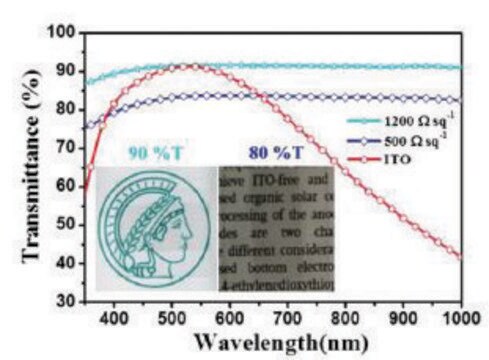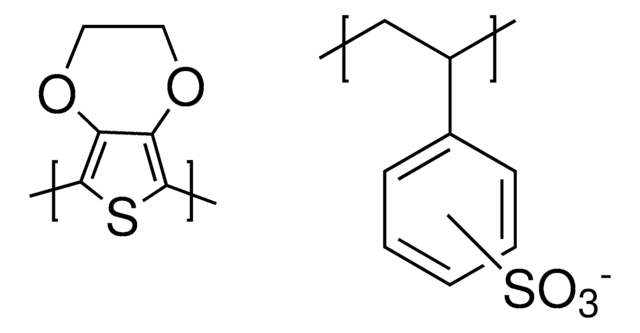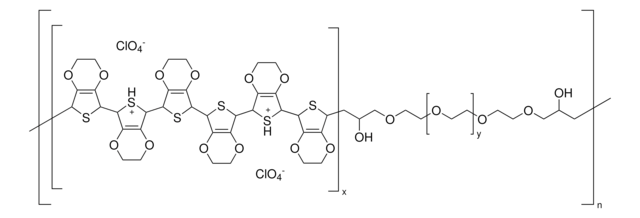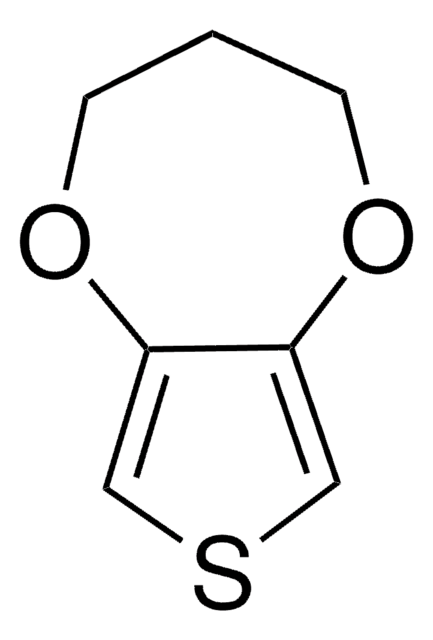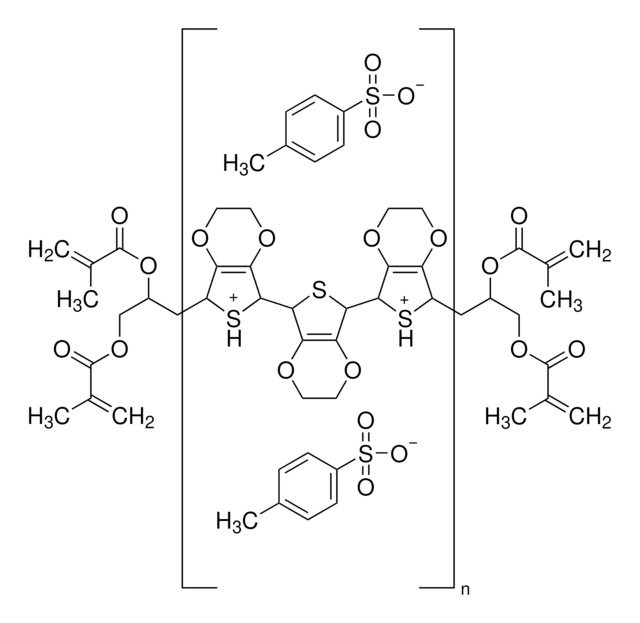675288
PEDOT
nanoparticles, aqueous dispersion
Synonym(e):
PEDOT, Poly-(2,3-dihydrothieno-1,4-dioxin)
About This Item
Empfohlene Produkte
product name
Poly(3,4-ethylendioxythiophen), nanoparticles, dispersion, in H2O
Form
dispersion
nanoparticles
Qualitätsniveau
Enthält
dodecylbenzene sulfonic acid (DBSA) as dopant
Konzentration
in H2O
Lagertemp.
2-8°C
Verwandte Kategorien
Allgemeine Beschreibung
Anwendung
Lagerklassenschlüssel
10 - Combustible liquids
WGK
WGK 2
Flammpunkt (°F)
Not applicable
Flammpunkt (°C)
Not applicable
Persönliche Schutzausrüstung
Eyeshields, Gloves, multi-purpose combination respirator cartridge (US)
Hier finden Sie alle aktuellen Versionen:
Besitzen Sie dieses Produkt bereits?
In der Dokumentenbibliothek finden Sie die Dokumentation zu den Produkten, die Sie kürzlich erworben haben.
Kunden haben sich ebenfalls angesehen
Artikel
Conjugated polymers offer charge transport between inorganic, electrically conducting metals and organic, proton-conducting biological systems.
Progress in Organic Thermoelectric Materials & Devices including high ZT values of >0.2 at room temperature by p-type (PEDOT:PSS) & n-type (Poly[Kx(Ni-ett)]) materials are discussed.
Professor Rivnay (Northwestern University, USA) discusses using organic mixed conductors as an alternative to efficiently bridge the ionic world of biology with contemporary microelectronics.
The application of conducting polymers at the interface with biology is an exciting new trend in organic electronics research.
Unser Team von Wissenschaftlern verfügt über Erfahrung in allen Forschungsbereichen einschließlich Life Science, Materialwissenschaften, chemischer Synthese, Chromatographie, Analytik und vielen mehr..
Setzen Sie sich mit dem technischen Dienst in Verbindung.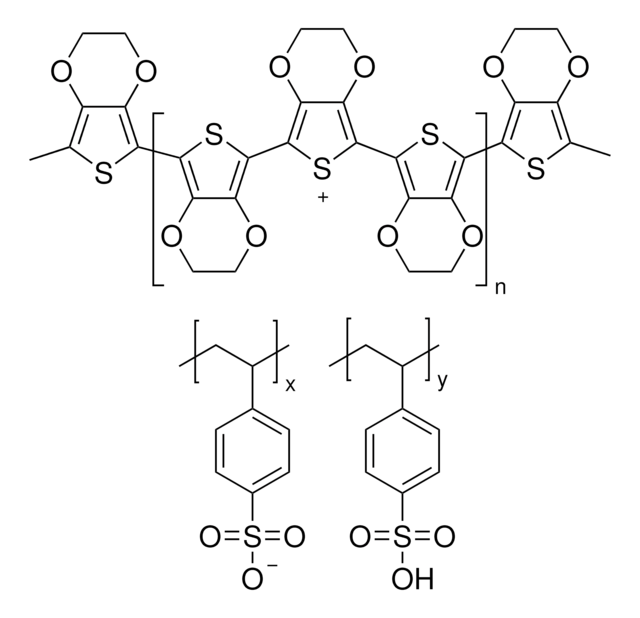
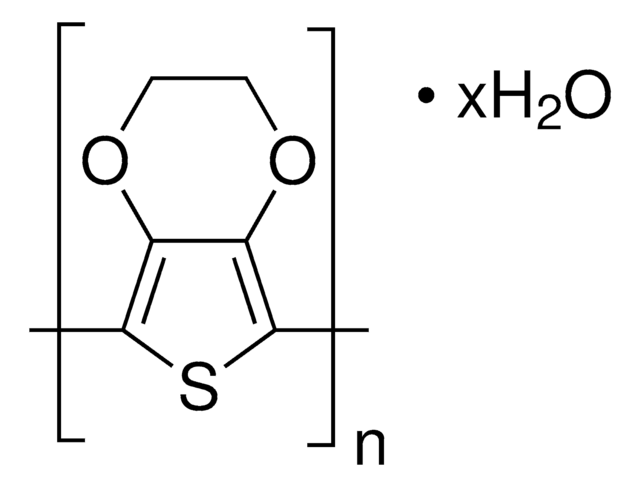
![2,3-Dihydrothieno[3,4-b]-1,4-dioxin 97%](/deepweb/assets/sigmaaldrich/product/structures/268/912/cdf638a8-0f41-4525-838f-0b60770b1999/640/cdf638a8-0f41-4525-838f-0b60770b1999.png)
